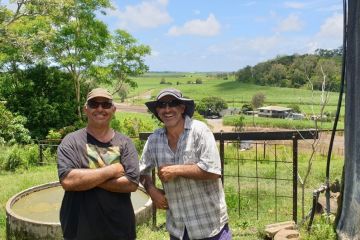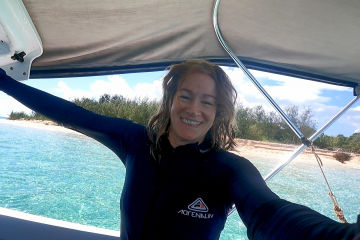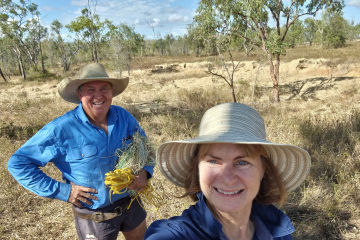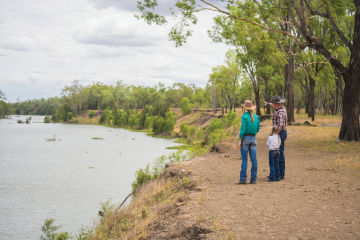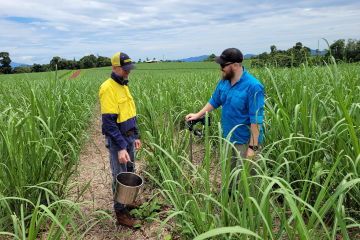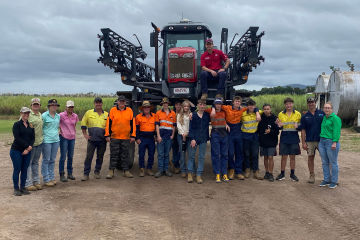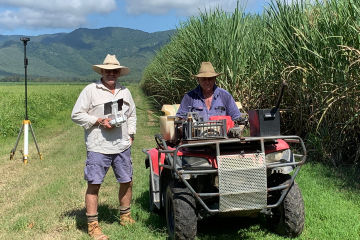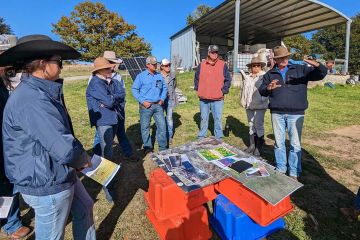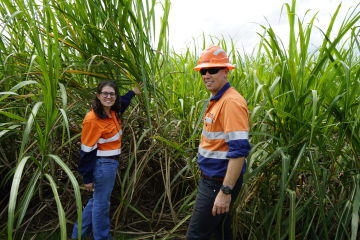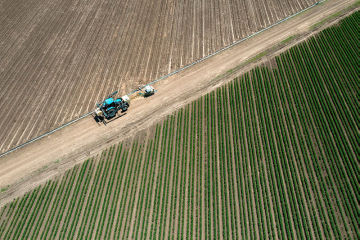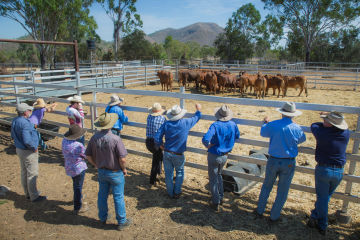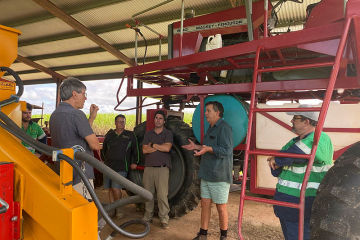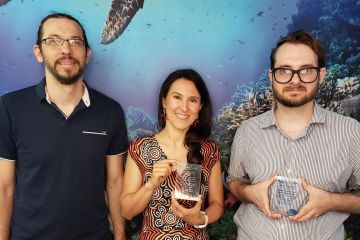Water Quality
Addressing water quality improvement targets impacting the Great Barrier Reef through improved land management practices, reduced fertiliser and pesticide use, and the uptake of new technology and agricultural practices.

#Improving the quality of water entering our Reef.
Coral reefs, and the ecosystems they sustain, depend on the quality of the water within and around them. Declining water quality associated with run-off from the adjacent catchments is a major cause of the current poor state of many of the coastal and marine ecosystems of the Great Barrier Reef. Increasing sediment, nutrients and contaminants, combined with rising sea temperatures and ocean acidification are damaging our Reef.
Improving water quality buys time for marine and coastal ecosystems to adapt to multiple stressors and increases their ability to withstand and recover from the challenges associated with climate change. The Water Quality Program supports agricultural management practices that increase the profitability, productivity, and sustainability of food production systems while also reducing pollutants lost through runoff.
#End of Partnership Outcomes
The Reef Trust Partnership’s Water Quality component resulted in:
Enduring reduction in long-term end-of-catchment pollutant loads
Conservation and protection of less disturbed catchments
Innovations for system change in water quality improvement
Traditional Owner-led water quality projects increased
Improved water quality program management framework

#$199.7 million invested
Improving water quality is expected to play an important role in improving ecosystem resilience. Almost half of the Reef Trust Partnership funding was allocated to efforts that addressed water quality issues.
The Reef 2050 Water Quality Improvement Plan identifies priority catchments and targets for reducing pollution from catchments flowing to the Reef. Funding under the Reef Trust Partnership delivered measurable progress towards Reef 2050 Water Quality Improvement Plan targets.
#Impact
Transparency and accountability were key guiding principles in delivering the Reef Trust Partnership. The dashboard provides a snapshot of key areas that contributed to the Water Quality Component’s End of Partnership Outcomes.
#Reports and Publications
Legacy and Impact reports

RTP Water Quality Program Impact Report (Reyes et al. 2025)
RTP- Water Quality

RTP WQ Innovation Program Impact Report (James et al. 2025)
RTP- Water Quality

Bowen Broken Bogie Water Quality Program: Legacy Report (2025)
RTP- Water Quality

Mary Water Quality Program: Legacy Report (2024)
RTP- Water Quality

Upper Herbert Water Quality Program: Legacy Report (2024)
RTP- Water Quality

Upper and East Burdekin Water Quality Program: Legacy Report (2024)
RTP- Water Quality

Fitzroy Water Quality Program: Legacy Report (2024)
RTP- Water Quality

Mulgrave-Russell Water Quality Program: Legacy Report (2024)
RTP- Water Quality

Tully-Johnstone Water Quality Program: Legacy Report (2024)
RTP- Water Quality

Lower Herbert Water Quality Program: Legacy Report (2024)
RTP- Water Quality

Lower Burdekin Water Quality Program: Legacy Report (2024)
RTP- Water Quality

Mackay-Whitsunday Water Quality Program: Legacy Report (2024)
RTP- Water Quality
Monitoring and Evaluation Reports

Sugarcane Verification Report (Dench, 2024)
RTP- Water Quality

GLM Verification Report (Kerr, 2024)
RTP- Water Quality

Landscape Remediation Verification Report (Landloch, 2025)
RTP- Water Quality

CaneRise Mackay Whitsunday Summary (The Social Deck, 2024)
RTP- Water Quality

Evaluation of ECYWQ Program Governance (Mosaic Insights, 2025)
RTP- Water Quality

Evaluation of RTPWQ Program Governance (Mosaic Insights, 2025)
RTP- Water Quality

Evaluation of RTP Regional WQ Program MGP (Eberhard 2024)
RTP- Water Quality

Sugarcane Landholder Characterisation Report (Mosaic Insights, 2022)
RTP- Water Quality

Behavioural Insights for Practice Change (The Social Deck, 2022)
RTP- Water Quality

Investment Pathways Report (Alluvium, 2019)
RTP- Water Quality

Investment Strategy
Reef Trust Partnership

Monitoring and Evaluation Plan
Reef Trust Partnership
Technical Reports

Wetland Synthesis Report (Waterhouse et al. 2025)
RTP- Water Quality

Erosion Control for Unsealed Roads (Klye et al. 2025)
RTP- Water Quality

Cleaner Road Runoff Technical Report (Johnson et al. 2024)
RTP- Water Quality

BMPs for Primitive Road Erosion Control (Shellberg et al. 2024)
RTP- Water Quality

Drone Use in Riparian and Wetland Restoration BMPs (2023)
RTP- Water Quality

The effectiveness of EEFs (Connellan et al. 2023)
RTP- Water Quality

Farmlands to Reef Regeneration Financial Feasibility Study (2023)
RTP- Water Quality

Redefining and reconfiguring Reef catchment land use (NCE, 2022)
RTP- Water Quality
Fact Sheets and Case Studies

Regenerative grazing practices in grazed rangelands (CSIRO, 2023)
RTP- Water Quality

Wetland Hydrology and Nutrient Model Development
RTP- Water Quality

Cost-effective sensor for dissolved inorganic nitrogen (Intellidesign)
RTP- Water Quality

Multispecies Break Crops, Mackay (Farmacist)
RTP- Water Quality

Mapping of channel extent and gully erosion risk (CSIRO)
RTP- Water Quality
#News

Project News ·
Community at the forefront of Reef water quality protection

Project News ·
Citizen scientists support water quality research

Project News ·
A nature-based solution for a healthier Reef

Project News ·
Graziers contribute to preserving the Great Barrier Reef

Project News ·
Agronomic skills boosted in North Queensland

Project News ·
Landscape restoration stops significant sediment losses

Project News ·
Putting plans into action for sustainability

Project News ·
Precision agriculture in bananas a reality

Project News ·
Wet Tropics farmers improve local water quality

Project News ·
Improved Grazing Management in the Burdekin

Project News ·
Celebrating grazing land management successes in the Fitzroy
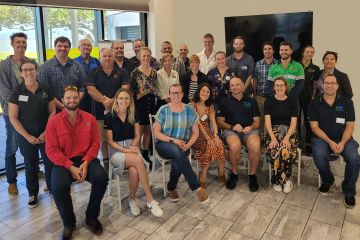
Project News ·
Supporting water quality monitoring for sugar cane farming

Project News ·
Stepping up for a farming future

Project News ·
Affordable technology for Precision Agriculture
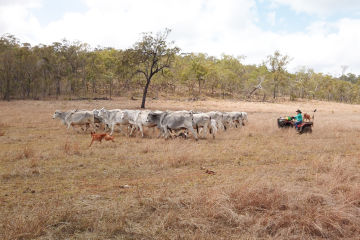
Project News ·
Preventing erosion in the Herbert

Project News ·
Sharing costs to improve farming practices
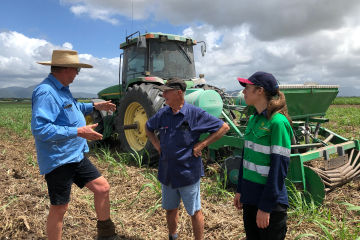
Project News ·
Positive relationships lead to improved water quality
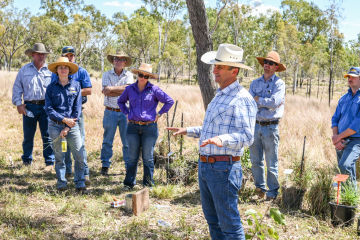
Project News ·
Working with nature to restore degraded landscapes

Project News ·
Livestock management for improved land condition
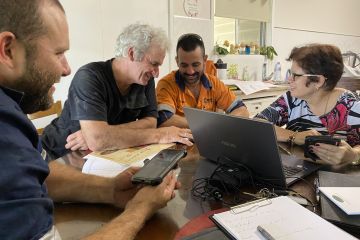
Project News ·
Practice change in action
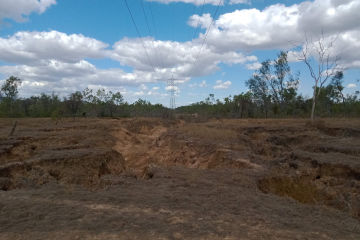
Project News ·
Fixing a problem 50 years in the making
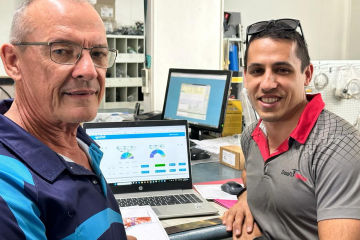
Project News ·
Data-driven decision-making saves time
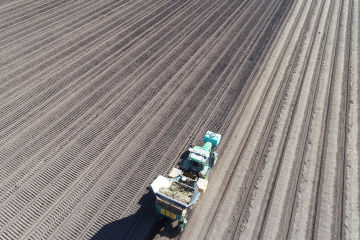
Project News ·
Soil health is no small potatoes
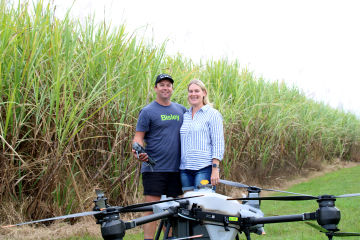
Project News ·
Aerial drone reduces fertiliser losses from farm
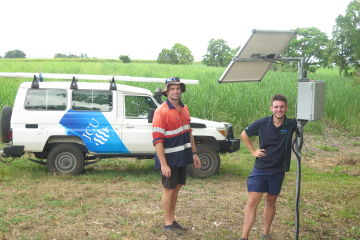
Healthy soils for healthy waters: next-gen cane farmers gain new knowledge for sustainability

People of the Reef ·








